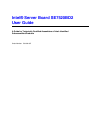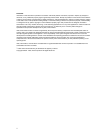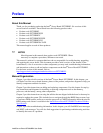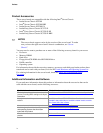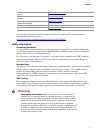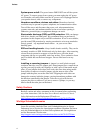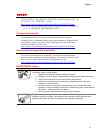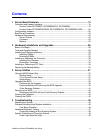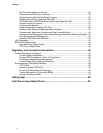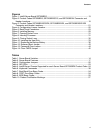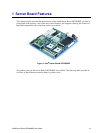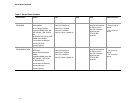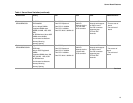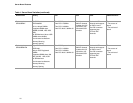
Intel® Server Board SE7520BD2 User Guide iii
Preface
About this Manual
Thank you for purchasing and using the Intel
®
Server Board SE7520BD2. Six versions of this
server board are available. These boards have the following product codes:
Product code SE7520BD2
Product code SE7520BD2SCSI
Product code SE7520BD2V
Product code SE7520BD2SCSID2
Product code SE7520BD2VD2
Product code SE7520BD2SATAD2
This manual applies to each of these products.
✏
NOTES
Most diagrams in this manual show product code SE7520BD2. Where
necessary to complete a procedure, differences are noted.
This manual is written for system technicians who are responsible for troubleshooting, upgrading,
and repairing this server board. This document provides a brief overview of the features of the
board/chassis, a list of accessories or other components you may need, troubleshooting information,
and instructions on how to add and replace components on the Intel
®
Server Board SE7520BD2.
For the latest version of this manual, refer to
http://support.intel.com/support/motherboards/server/SE7520BD2/
.
Manual Organization
Chapter 1 provides a brief overview of the Intel
®
Server Board SE7520BD2. In this chapter, you
will find a list of the server board features, photos of the product, and product diagrams to help you
identify components and their locations.
Chapter 2 provides instructions on adding and replacing components. Use this chapter for step-by-
step instructions and diagrams for installing or replacing components such as the memory,
processor, and the battery, among other components.
Chapter 3 provides instructions on using the utilities that are shipped with the board or that may be
required to update the system. This includes how to navigate through the BIOS Setup screens, how
to perform a BIOS update, and how to reset the password or CMOS. Information about the specific
BIOS settings and screens is available in the Intel® Server Board SE7520BD2 Technical Product
Specification.
Chapter 4 provides troubleshooting information. In this chapter, you will find BIOS error messages
and POST code messages. You will also find suggestions for performing troubleshooting activities
to identify the source of a problem.



